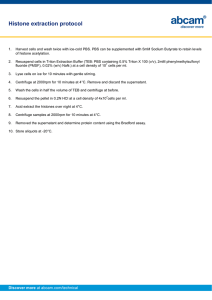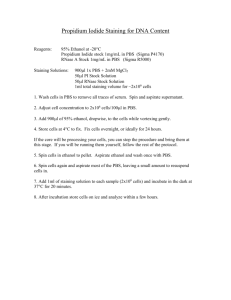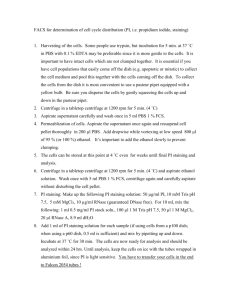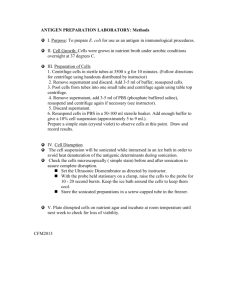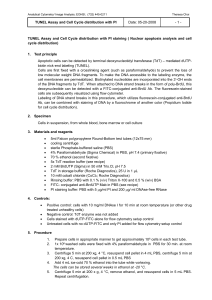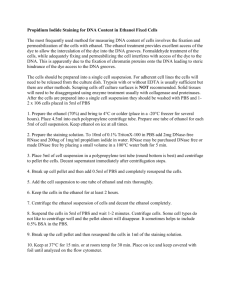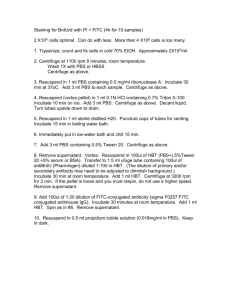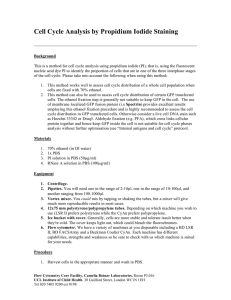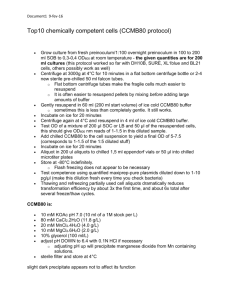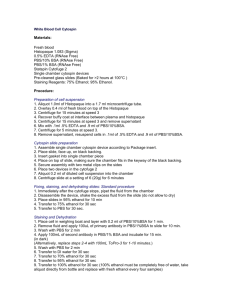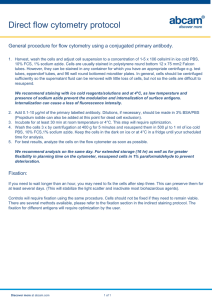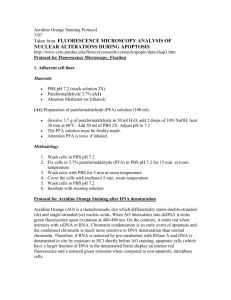cellcycle using etha..
advertisement
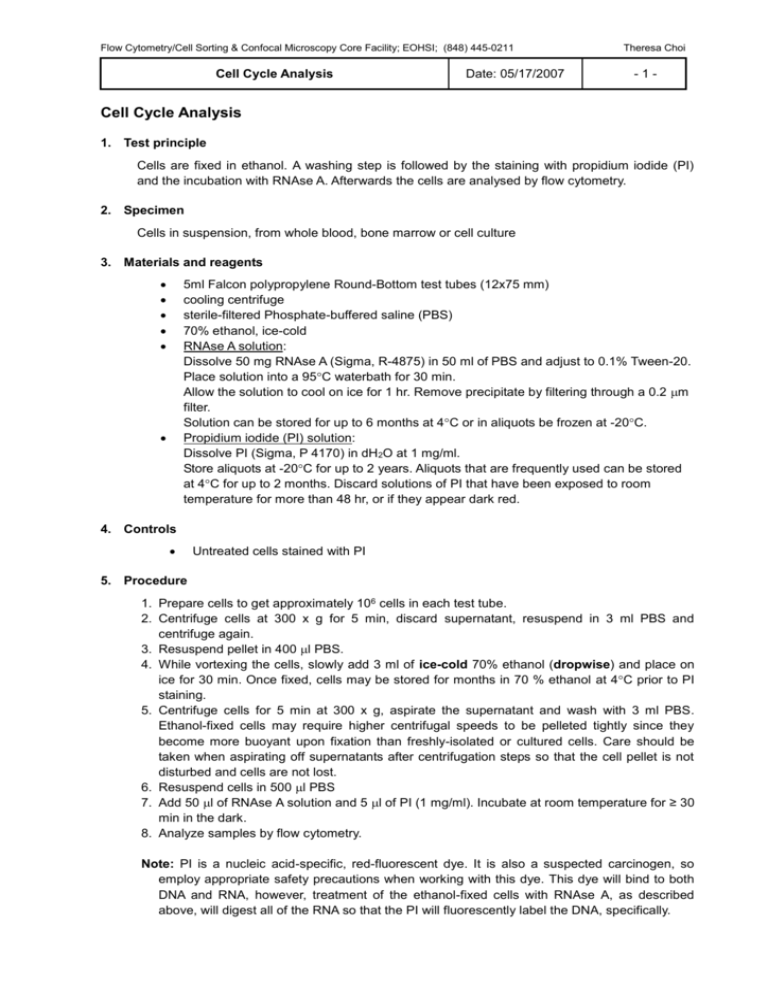
Flow Cytometry/Cell Sorting & Confocal Microscopy Core Facility; EOHSI; (848) 445-0211 Cell Cycle Analysis Date: 05/17/2007 Theresa Choi -1- Cell Cycle Analysis 1. Test principle Cells are fixed in ethanol. A washing step is followed by the staining with propidium iodide (PI) and the incubation with RNAse A. Afterwards the cells are analysed by flow cytometry. 2. Specimen Cells in suspension, from whole blood, bone marrow or cell culture 3. Materials and reagents 5ml Falcon polypropylene Round-Bottom test tubes (12x75 mm) cooling centrifuge sterile-filtered Phosphate-buffered saline (PBS) 70% ethanol, ice-cold RNAse A solution: Dissolve 50 mg RNAse A (Sigma, R-4875) in 50 ml of PBS and adjust to 0.1% Tween-20. Place solution into a 95C waterbath for 30 min. Allow the solution to cool on ice for 1 hr. Remove precipitate by filtering through a 0.2 m filter. Solution can be stored for up to 6 months at 4C or in aliquots be frozen at -20C. Propidium iodide (PI) solution: Dissolve PI (Sigma, P 4170) in dH2O at 1 mg/ml. Store aliquots at -20C for up to 2 years. Aliquots that are frequently used can be stored at 4C for up to 2 months. Discard solutions of PI that have been exposed to room temperature for more than 48 hr, or if they appear dark red. 4. Controls Untreated cells stained with PI 5. Procedure 1. Prepare cells to get approximately 106 cells in each test tube. 2. Centrifuge cells at 300 x g for 5 min, discard supernatant, resuspend in 3 ml PBS and centrifuge again. 3. Resuspend pellet in 400 l PBS. 4. While vortexing the cells, slowly add 3 ml of ice-cold 70% ethanol (dropwise) and place on ice for 30 min. Once fixed, cells may be stored for months in 70 % ethanol at 4C prior to PI staining. 5. Centrifuge cells for 5 min at 300 x g, aspirate the supernatant and wash with 3 ml PBS. Ethanol-fixed cells may require higher centrifugal speeds to be pelleted tightly since they become more buoyant upon fixation than freshly-isolated or cultured cells. Care should be taken when aspirating off supernatants after centrifugation steps so that the cell pellet is not disturbed and cells are not lost. 6. Resuspend cells in 500 l PBS 7. Add 50 l of RNAse A solution and 5 l of PI (1 mg/ml). Incubate at room temperature for ≥ 30 min in the dark. 8. Analyze samples by flow cytometry. Note: PI is a nucleic acid-specific, red-fluorescent dye. It is also a suspected carcinogen, so employ appropriate safety precautions when working with this dye. This dye will bind to both DNA and RNA, however, treatment of the ethanol-fixed cells with RNAse A, as described above, will digest all of the RNA so that the PI will fluorescently label the DNA, specifically.
